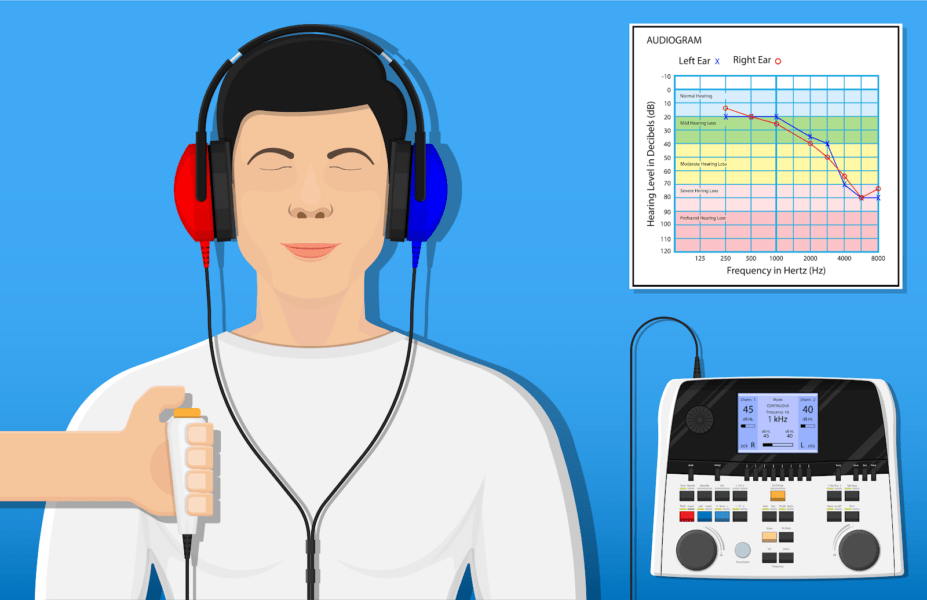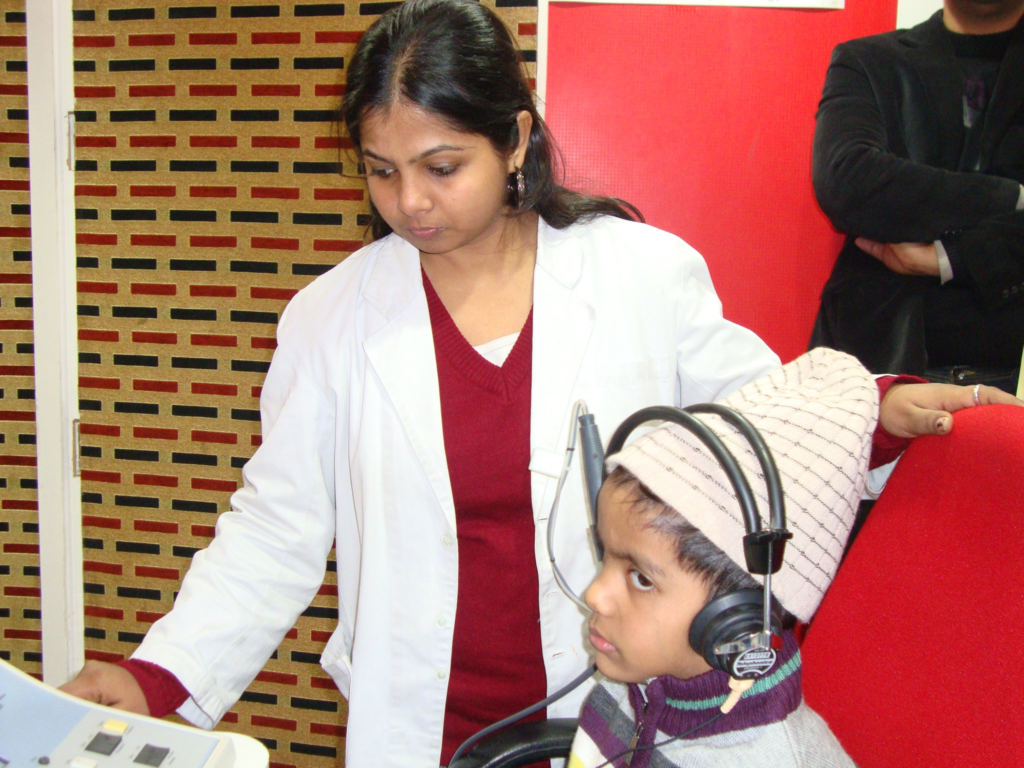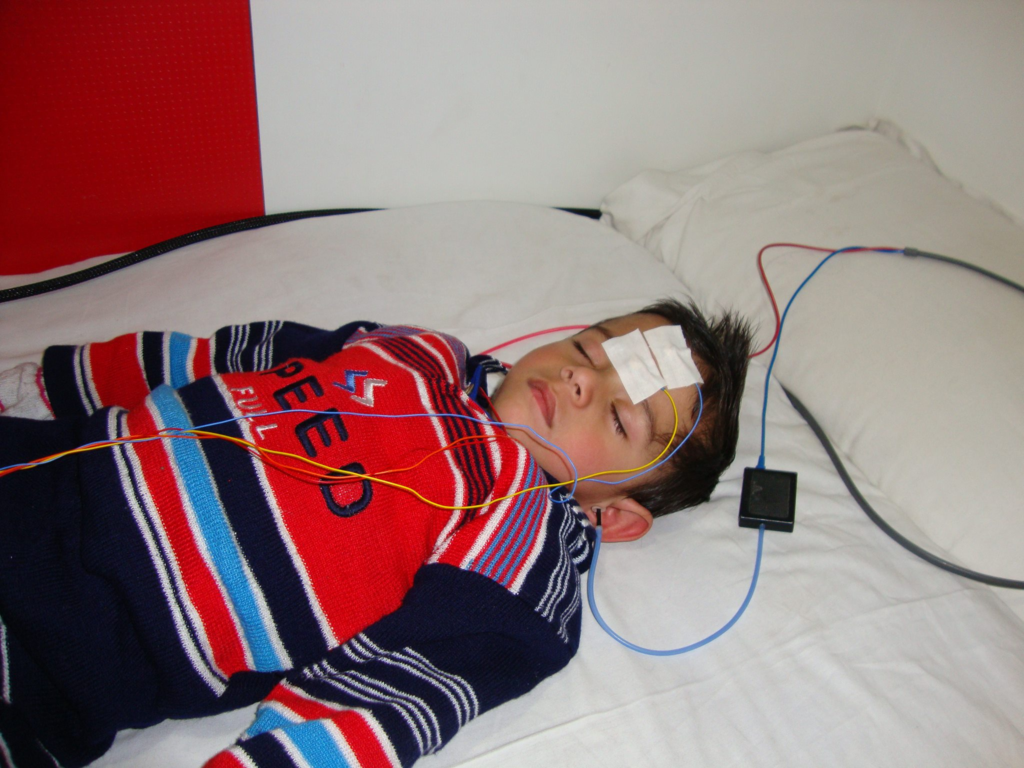1. Otoscopy
The audiologist uses an instrument to look into your ear to determine the presence of wax or any abnormalities that may hinder further healing testing.
2. Pure tone audiometry (PTA)
You will be asked to wear headphones and sit in a specially designed booth. You will be instructed to raise your hand or press a button every time you hear beeps.This test is done to find out the softest sound that you can hear. The results will be noted by the audiologist on an audiogram and will be discussed with you after all the required tests are done.
3. Bone conduction audiometry
An instrument will be placed behind your ear which sends sound through the bone to your inner ear and the same instruction for pure tone audiometry is given. This test helps to determine your type of hearing loss.
4. Speech testing
This test is conducted by giving you headphones and a microphone, and you will be required to repeat the words you hear. It measures the softest speech you can understand 50 % of the time.
5. Acoustic Reflex Testing (ART)
A tip is put in the ear which records an involuntary muscle response of the to sound.This test in addition to other assessments help in ascertaining the location of your hearing problem.
6. Tympanometry / Impedance Test
This test is not a hearing test just like the ART and uses the same instrument used for the previous test but instead of sound a slight pressure is introduced to the ear which helps determine the presence of fluid build up, wax or perforations.
7. Brainstem Evoked Response Audiometry (BERA)
For this test a tester attaches/sticks electrodes on your head, scalp and behind your ears with a skin friendly adhesive and uses an instrument to record your hearing nerve’sresponse to sounds.







